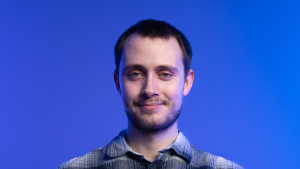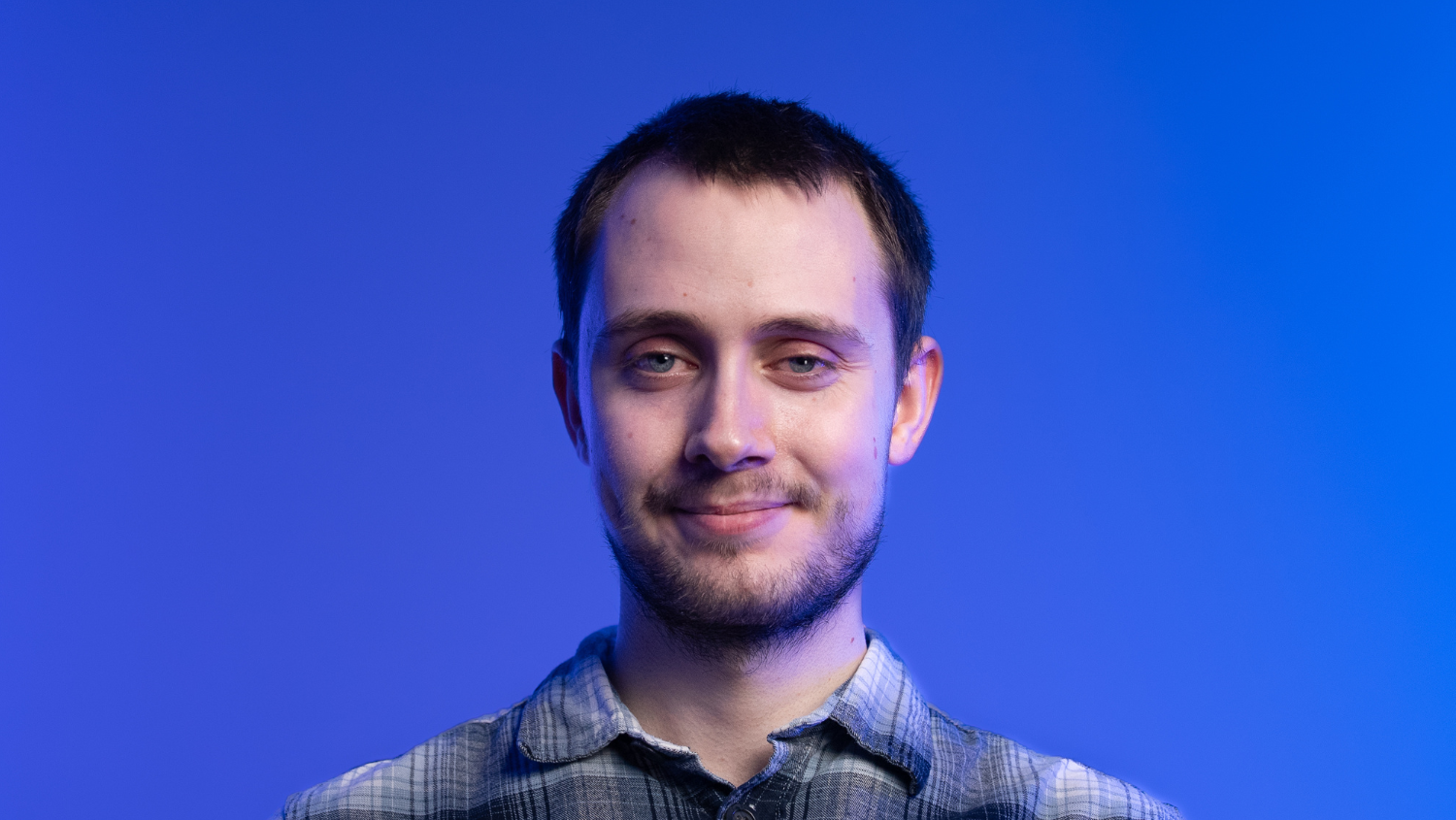‟ We should understand that everybody has different backgrounds. What people say or how they react doesn’t necessarily mean the same thing you’re used to (…) We should be more relaxed and accept different cultures.”
Meet Pablo Garcia Fernandez: from Madrid’s maths classrooms to Luxembourg’s cryptography labs, his journey took an unexpected turn. What began as a search for a PhD in mathematics became a mission to solve one of the internet’s biggest puzzles: how do we trust people we’ve never met? Through zero-knowledge proofs and cryptography, he’s working to make online communication more secure. With his tablet in hand and a passion for mixing different ideas, Pablo tackles the fundamental challenge of building trust in our digital world—proving you know something without revealing what you know.
Relive the conversation – transcript below!
Tell us about your background and how you ended up in Luxembourg.
I’ve been in Luxembourg since October 2023 for my PhD. I have a bachelor’s in maths and two master’s degrees – one in teaching maths and another in pure maths, all from Madrid. I was looking for a PhD in mathematics worldwide, found the University of Luxembourg, applied, and they accepted me. So, I said, why not?
What is your research about in simple terms?
My research is fundamentally about trust. I work with zero-knowledge proofs and symmetric cryptography to help people communicate securely online, especially when you don’t know the other person. It’s about proving you have knowledge without revealing that knowledge – like proving you have a valid passport without showing the number to prevent malicious use.
How would you explain your field to a five-year-old?
My research explained to a five-year-old in one word would be communication.
What inspired you to pursue tech research?
I could use my previous maths knowledge in an area that’s also applied – something useful while building on what I’d already learned. I was always interested in maths because you can construct everything from a base, unlike many subjects where there’s no clear foundation and you just keep adding knowledge without structure.
What’s your biggest challenge as a researcher?
Uncertainty. You start knowing almost nothing, then read and learn constantly. You develop ideas, but they’re usually not good. You keep learning until you have what seems like a good idea, but then you don’t know if it really is good. So, you still have to work a lot to find out.
How do you deal with failure and setbacks in research?
My experience with failure really depends on the day.
‟ Some days I think, “It’s okay, I’m not advancing, but I’m working, so eventually I’ll find something interesting.” Other days I feel like months have passed already and I don’t have anything to show for it.”
What makes you unique as a researcher?
I’m someone with many different interests who likes to change focus frequently. I might be very interested in one topic for a month, then switch to another. This gives me broad knowledge across many areas. Things that seem strange to others aren’t strange to me because I know a little about them.
‟ This is useful because research is about mixing different ideas to create something new.”
How can we make tech research more welcoming and inclusive?
It’s already pretty welcoming in my experience – people are generally nice. But we should understand that everybody has different backgrounds. What people say or how they react doesn’t necessarily mean the same thing you’re used to. Something that seems inpolite to you might be normal in another culture. We should be more relaxed and accept different cultures. As a Spanish speaking English for my work, it has not always been easy to immediately be understood, but I have learnt to be patient and persistent. In the end, part of inclusion is accepting that we don’t all communicate in the same way; it is important to take time to listen properly to one another.
What’s the biggest misconception about your field?
A big misconception is that researchers, especially in science and technology, aren’t creative – that we just follow formulas or algorithms like robots. In reality, research is deeply creative. To make progress, you constantly need to combine ideas, look at problems from new angles, and imagine solutions that don’t yet exist. Creativity is at the heart of every breakthrough.
Supported by the Luxembourg National Research Fund.

